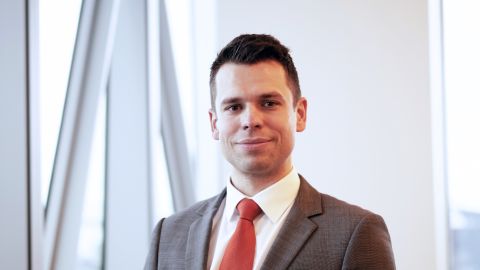Simon Kuestenmacher is director and co-founder of The Demographics Group. In 2018, Carto named Simon as one of the world’s top 50 influencers in data science.
What’s Sydney’s reputation and position as a global city?
Sydney is a prime location for tourists and professionals. It’s the most important English-speaking city in Asia and Oceania – a crucial asset in a world where English is the business language of choice.
The economic power in many ways has shifted back from nation states towards cities. In the Globalization and World Cities network, Sydney is ranked as Alpha+, making it one of the 10 most important cities in the world.
What needs to be done to advance Sydney’s smart global city standing?
Smart global cities compete for talent on a global scale. In the knowledge-driven economy, businesses will increasingly choose to establish offices in locations that are considered safe, liveable and well-connected. To maintain and build on its Alpha+ ranking, Sydney must strive to become ever more liveable.
Digital infrastructure in Sydney must not lag behind its global competitor cities.
Fast internet, a truly interconnected and smooth transport network and affordable housing will be key to attract top global talent. Internet speed – upload and download – is also crucial. We must not miss out on technology upgrades such as 5G.
Most importantly, we must remember that a smart city project doesn’t always look flash. We must stop focussing only on futuristic looking projects such as flying taxis, self-driving cars and other “shiny things”.
Often a truly smart city doesn’t look smart but simply uses smart data to provide effective infrastructure solutions to basic problems.
What can Sydney learn from Asia’s smart cities?
Sydney will need to face a decade or 2 of elevated infrastructure spending. The Central Sydney Planning Strategy is bold and could well be the key to unlocking Sydney’s true potential.
We live in an interconnected age. Sydney must be in constant exchange with other cities to learn about best practice. The goal is to establish ongoing communication and open data with other Asian cities.
Once a specific solution turns out to work elsewhere we must not be hesitant to implement this in Sydney. Our current slow pace doesn’t do justice to the potentialities of the 21st century.
How can businesses and governments further strengthen connections with Asia?
We live in the Asian century with large emerging middle classes appearing in countless Chinese and Indian cities. Sydney needs to establish more direct air links to the big emerging players in Asia.
As a business, when you’re hiring you want to hire for intellectual and cultural diversity. As the market diversifies and Asia becomes more important, any business will benefit from true insider information. To do this, ensure cross-cultural communication within your firm is part of daily office life.
How can businesses get smarter and why should they?
In recent years more businesses and government departments have collected data about their business, customers and broader logistics network. But it’s surprising how little use many businesses make of their data. They collect data because that’s what you’re supposed to do.
When it comes to using their data, the accompanying analysis tasks are often handed to someone in the firm who doesn’t have the executive decision making powers. Ultimately things continue being done in the same way they always have.
The Future Asia Business Summit is a City of Sydney program designed to strengthen Sydney-Asia business ties and engage in emerging areas of opportunity.
The free event will be held at Sydney Town Hall on Tuesday 23 to Wednesday 24 July 2019 and includes a networking lunch from 12pm to 1pm.
Published 8 July 2019, updated 29 February 2024



